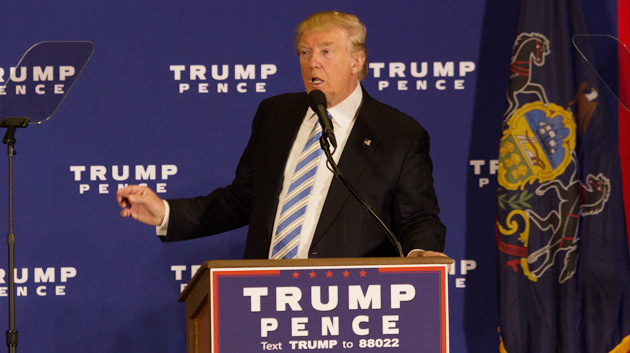“Draining the Swamp”: Trump’s Plan to Destroy the Oligarchy and Regain “Fatherland America”
As we near the end of the U.S. presidential campaign, it is all the more important that U.S. citizens are aware of the immense power of their vote.
“[T]he rise of Mr Trump threatens to damage the prestige of democracy everywhere.” This quote is taken from an article in The Financial Times titled ‘Donald Trump and the declining prestige of US democracy’. Like The Financial Times, some people criticize U.S. politics for becoming too populist. But is this really true?
If we compare the rise of Trump to Britain’s withdrawal from the EU, this issue appears in a different light.
Before the announcement of Brexit, all of the major British newspapers thought that the likelihood of Britain withdrawing from the EU was close to nil. Once the national referendum was conducted, however, it became clear that 52% of people were in favour of a British exit.
One of the leaders endorsing Brexit at the time was Boris Johnson, the former mayor of London. Johnson was said to have given voice to the views of the lower middle class, who were unhappy about the power Brussels had over British laws. Johnson himself is not from the middle class, but is descended from King George II. It was a fine example of a member of the elite lending an ear to the voice of the people.
Let us compare this to Trump. It is said that Trump’s most passionate supporters in the presidential campaign are white males from the lower middle class. Film director Michael Moore, who is known for his severe Trump criticisms, puts it this way:
“Donald Trump came to the Detroit Economic Club and stood there in front of Ford Motor executives and said, ‘If you close these factories as you’re planning to do in Detroit and build them in Mexico, I’m going to put a 35 percent tariff on those cars when you send them back and nobody’s going to buy them.’ It was an amazing thing to see. No politician, Republican or Democrat, had ever said anything like that to these executives, and it was music to the ears of people in Michigan and Ohio and Pennsylvania and Wisconsin — the ‘Brexit states.'” (excerpt of article from Salon, Oct 26)
“Brexit states” is a term coined by Moore to refer to American states that appear to want to exit the U.S.
Moore’s comment illustrates how, while the press has provided a political voice for the establishment, the white working class has suffered from the hollowing out of the industry and no one heard their voice until Trump came along.
In other words, the problem is not that Trump is fanning populism or destructing democracy; the real problem is that the establishment only ever represented the voice of the establishment. As of late, U.S. politics has not been a government “of the people, by the people, for the people”, but a government for a select few: the elites. Far from being the quintessential democratic country it professes to be, the current U.S. operates as more of an oligarchy.
When it was founded, the U.S. represented the ideals of a republic. Its role model was the Roman Republic, which understood that the role of a country was to desire the spiritual and material happiness of every one of its people. This is why citizens could think of their country as a ‘fatherland’.
As Moore’s aptly coined term ‘Brexit states’ suggests, many of the states in America are thinking, “this is not the America we want”.
Machiavelli once criticised republics for their slowness compared to monarchies saying, “reforms don’t happen until someone revolts”. Until a revolution comes about, the U.S. will not be able to return to its state as an ideal republic: a free country where each person is entitled to pursue his or her own happiness.
On October 18, Trump gave an address in Gettysburg, Pennsylvania called his “100-day action plan”. The plan included controlling illegal immigrants, tax reduction for the middle class, creating employment for 25 million people in the next 10 years, and strict restrictions on lobbying. Trump used the reform slogan “Drain the Swamp of Washington” to call for the abolishment of the vested rights society.
The problem is not populism; it is the fact that democratic politics in the America has become an oligarchy. What we most need now is for someone to give agency to the voices drowned-out by the establishment, and aim for the happiness of each and every one of the people.
(Hanako Cho)



















